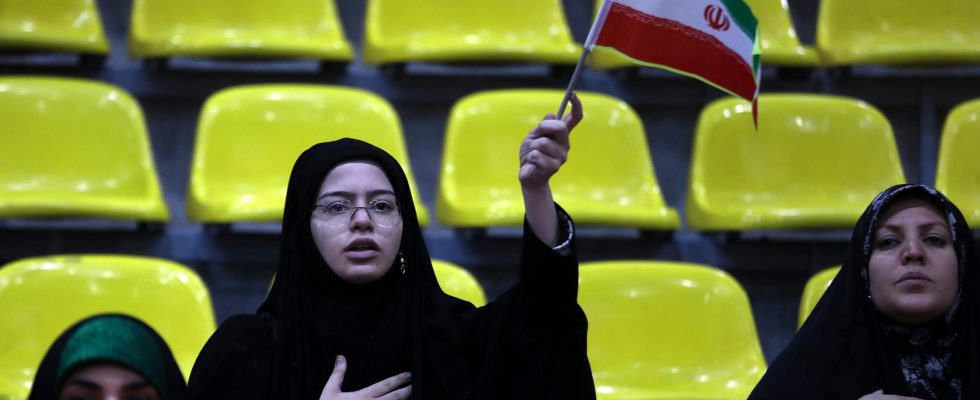unsaveSave
expand-left
full screen
chevron-rightnext
Women in Tehran listen to the national anthem during a campaign rally ahead of parliamentary elections. Picture taken February 27.
1 / 2Photo: Vahid Salemi/AP/TT
Years of mass protests and repression, an economy in freefall and heightened tensions with the West. Many Iranians have grown tired of a life dictated by the dictates of the ultra-religious regime.
As Iran holds parliamentary elections today, the biggest question is how many people actually show up at the polls.
– If I protest against something that is wrong, the police and the security service will try to stop me. But if I die of hunger in a corner in the middle of town, they won’t even react, says the 21-year-old student Amin to AP.
Of about 20 Iranians interviewed by the news agency, only five say they will vote. When Radio Farda, a branch of US-backed Radio Free Europe/Radio Liberty, asks the same question, many express a sense of futility; that the election is solely aimed at consolidating the regime’s power. One man says he hopes as few as possible go and vote.
– It is the only way to end this miserable, sad, poor life.
Flogging for breaking the veil
More and more Iranians are expressing frustration over the economic situation, AP reports. The country has been hit hard by international sanctions and recession. Few believe that the government in Tehran has the will or ability to turn the tide.
At the same time, the religious leadership has become increasingly hard-line, not least after the widespread wave of protests that followed the death of 22-year-old Mahsa Amini in the custody of the morality police in 2022. The protesters have been met with brutality by the regime and the rules surrounding the mandatory shawl, hijab, have been tightened. The most common punishment for going without a veil is 74 lashes, the BBC reports.
Activists, journalists, feminists and dissidents are thrown into prison on a daily basis, according to human rights organizations. A stream of dissent has been executed.
Calls for boycott
Hundreds of prominent voices, both from inside Iran and from exile in other countries, have recently called for a boycott of Friday’s election.
Among them is last year’s peace prize winner, the human rights activist Narges Mohammadi, who is imprisoned in the notorious Evin prison in Tehran.
“The Islamic Republic, with its ruthless and brutal repression, the killing of young people in the streets, the executions and torture of men and women, deserves national sanctions and international disgrace,” Mohammadi said in a statement posted on social media this week.
FACTS The parliamentary elections in Iran
In the March 1 election, Iranians will elect the 290 members of parliament, the so-called Islamic Consultative Assembly.
In addition to the parliament, the people also appoint the so-called Expert Assembly, which consists only of highly educated Shia Muslim imams. The 88 scribes in the Assembly of Experts have no legislative or decision-making power, but instead have the task of electing the country’s highest leader if necessary.
Voter turnout is expected to be below 50 percent. The election is neither considered free nor fair because the religious Guardian Council decides who can run. The council may reject candidates who are not considered sufficiently religiously knowledgeable or “purely learned”.
Since the revolution in 1979, Iran has had a constitution based on the revolutionary leader Ayatollah Ruhollah Khomeini’s ideas about a state based on religious foundations, a state of God (theocracy). The laws of Islam, sharia, form the basis of the country’s legislation and the religious courts. A religious power hierarchy has the decisive influence.
Source: Landguiden/UI, AP, AFP.
Read more
